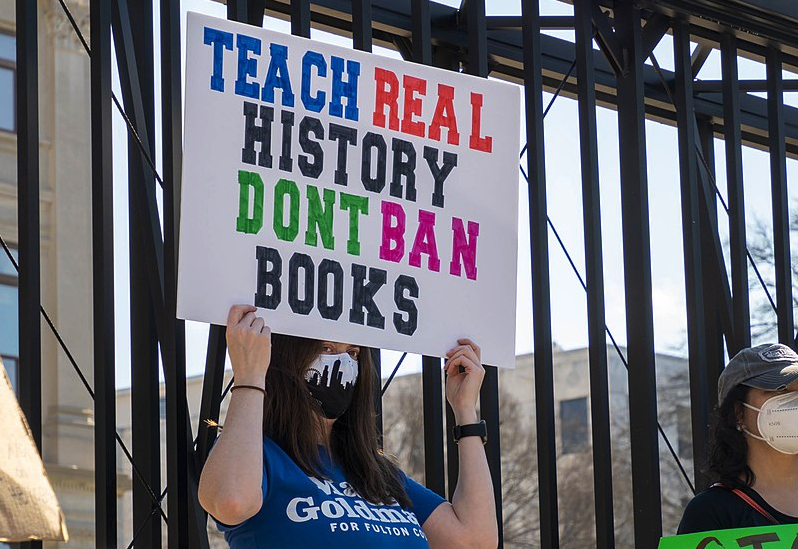EveryLibrary Poll Finds Book Bans Are Broadly Unpopular With Voters
By Andrew Albanese
The national poll, commissioned by the nonprofit EveryLibrary Institute and conducted by nonpartisan firm Embold Research, surveyed 1,123 registered voters from August 31 to September 3. Among its key findings: some 92% of voters are aware of the current wave of book banning. And, crucially, some 75% of respondents said they will consider book bans when they vote in November.
In a release, EveryLibrary officials said the polling results make clear that voters across party lines “want to make their own choices” when it comes to what they and their families read, free from government intervention.
“It is heartening to see that this belief in the right to read—and voter support for school libraries and public libraries—transcend partisanship,” said EveryLibrary director John Chrastka. “With such high numbers of voters from all parties, persuasions, and backgrounds telling us that they support Americans’ right to read, it’s time for politicians to pay attention and stop their attacks on libraries.”
Some of the poll’s key findings:
- Nearly all polled American voters (92%) have heard at least something about book banning.
- Fully half of all voters (50%) believe there is “absolutely no time when a book should be banned,” while 41% think there are only “rare times” when it’s appropriate. 31% of Republican voters polled said there is “absolutely no time” when book banning is appropriate.
- Some 75% of voters said “preventing book banning” was important to them when voting, with 43% saying it was “very important.” Only 8% think there are “many books that are inappropriate and should be banned.”
- Just 18% of voters support banning books that focus on race or critical race theory, and only one-third support banning books that discuss sexuality.
- Voters have favorable feelings about their libraries (69%) and librarians (66%) and their schools (53%) and school librarians (62%).
- Some 60% of voters oppose banning books alleged to be “explicit,” such as Maia Kobabe's Gender Queer or Toni Morrison's The Bluest Eye.
- Some 72% of voters oppose banning The 1619 Project or other works on slavery and race alleged to be “racially divisive.”
- Some 93% of voters oppose banning well-know or classic works, such as The Handmaid’s Tale, Of Mice and Men, and To Kill a Mockingbird.
Notably, the survey included a question with a series of statements to tease out what specifically is resonating with voters in terms of this current wave of book bans. Topping the list of statements voters most identified with: that states are “introducing legislation to ban certain books and/or the teaching of different topics, such as racism, inequality, and sexuality” (50%); that “politicians are trying to block attempts to make reading material more diverse and representative of the full picture of America” (43%); and that some states are considering “charging library employees for stocking certain books” (30%).
The EveryLibrary Institute is a companion organization to
EveryLibrary, a national political action committee dedicated to supporting libraries. Going back to early 2021, the EveryLibrary Institute has been tracking the surge in attempts to ban books in schools and public libraries, as well as
tracking dozens of pieces of state legislation—many of which not only threaten the freedom to read but, in some cases, threaten teachers and librarians with jail time or fines for providing information to students and patrons.
The EveryLibrary poll backs up
a national poll commissioned by the American Library Association earlier this year, which found that some 71% of voters oppose efforts to remove books from public libraries, including majorities of voters across party lines.
A new poll released to coincide with Banned Books Week confirms that efforts to censor books remain unpopular with voters across party lines.

www.publishersweekly.com















